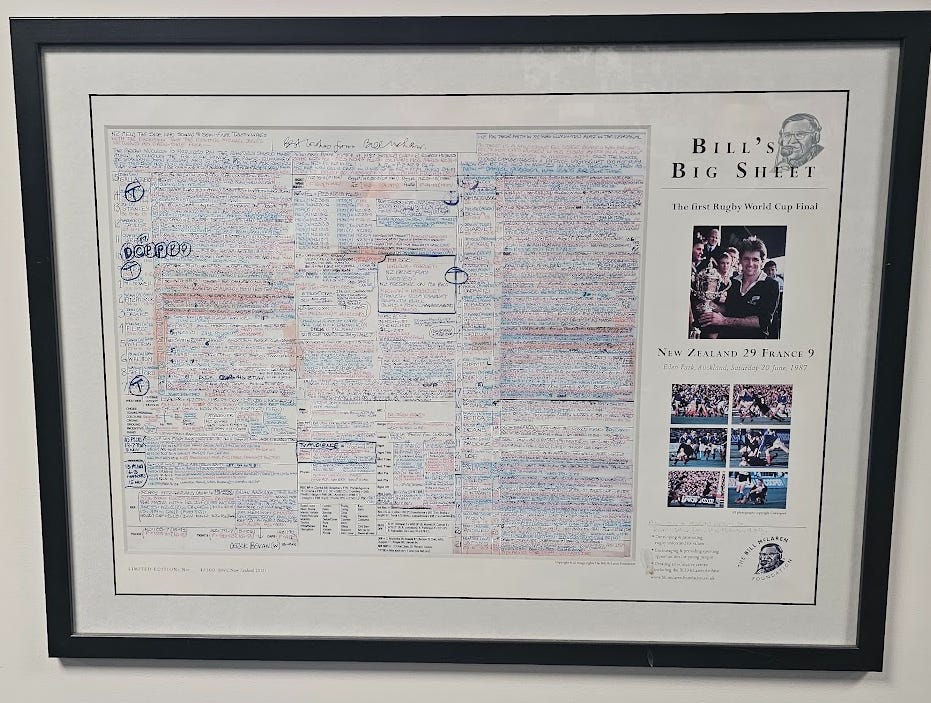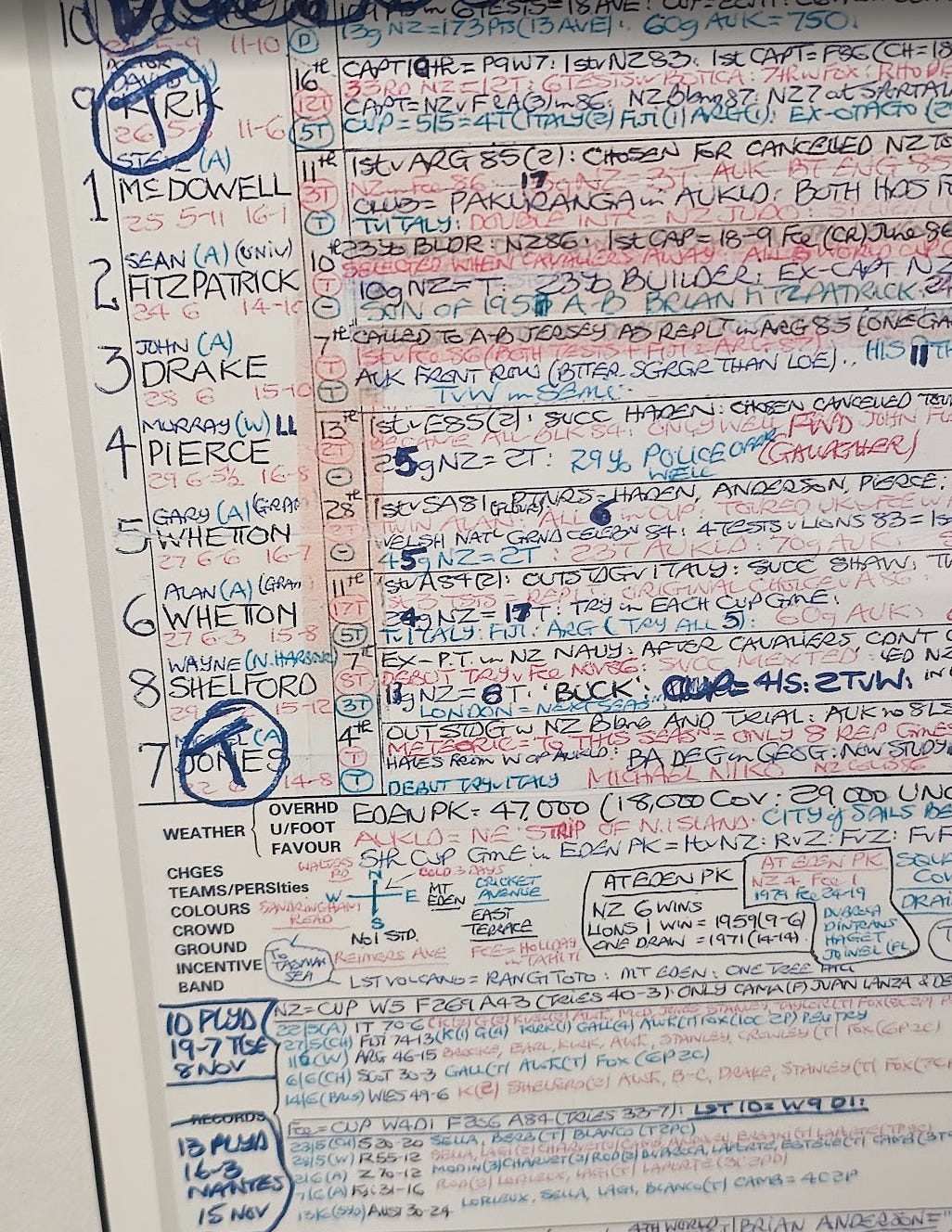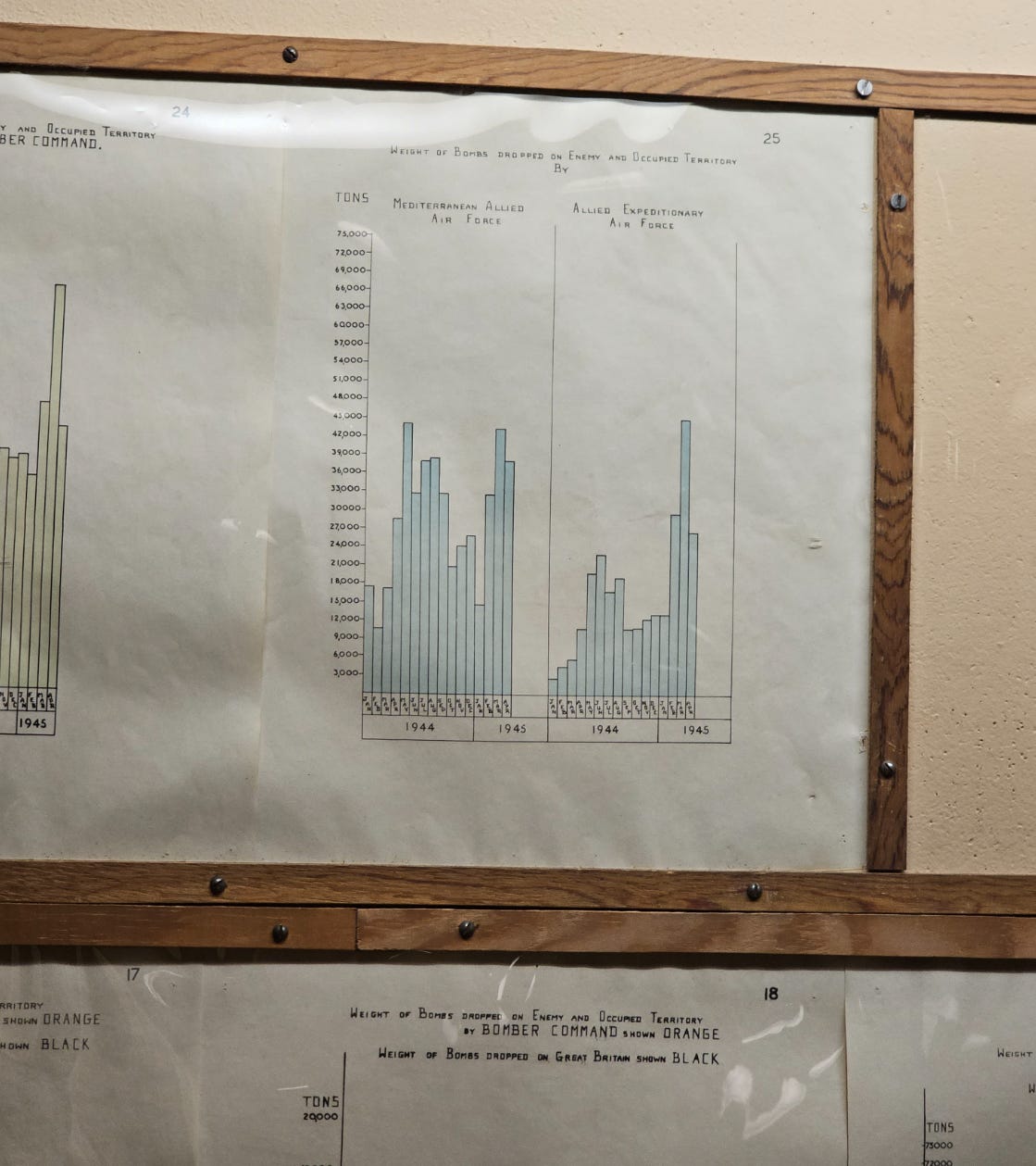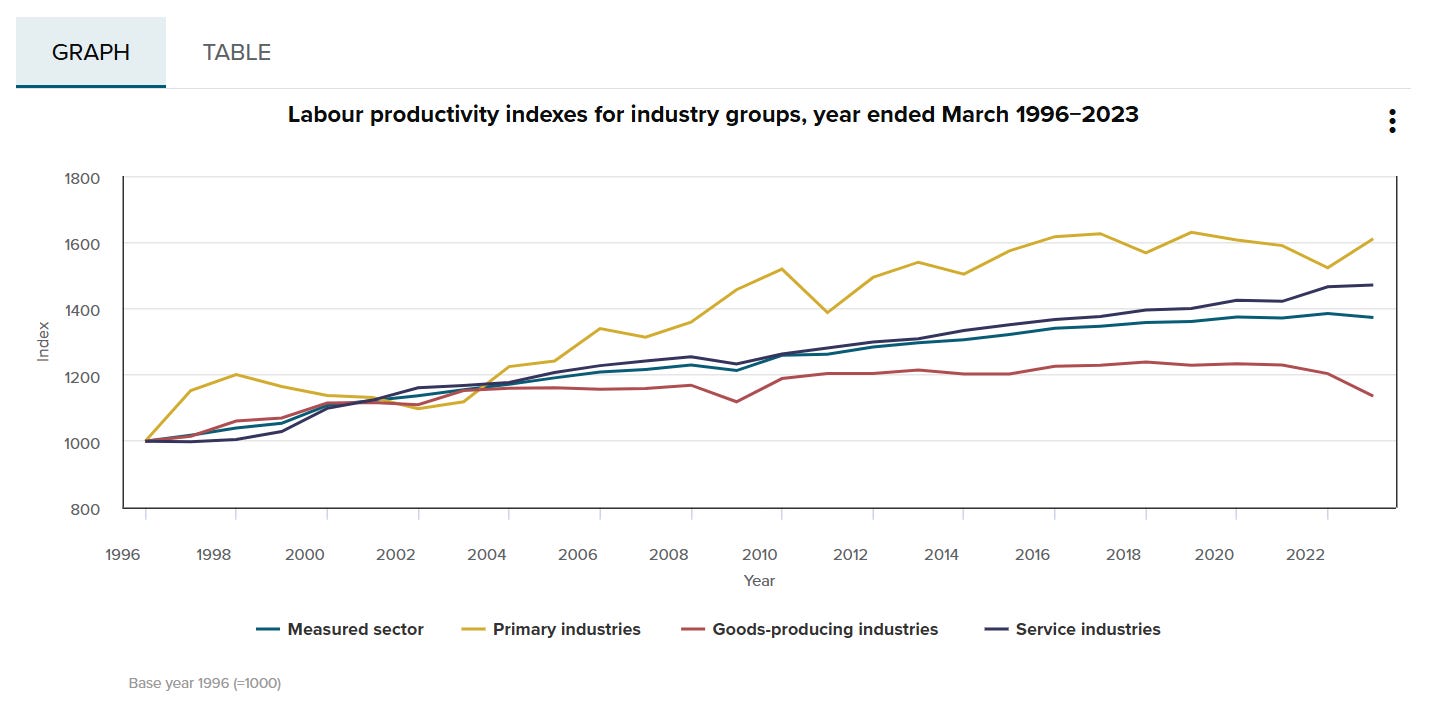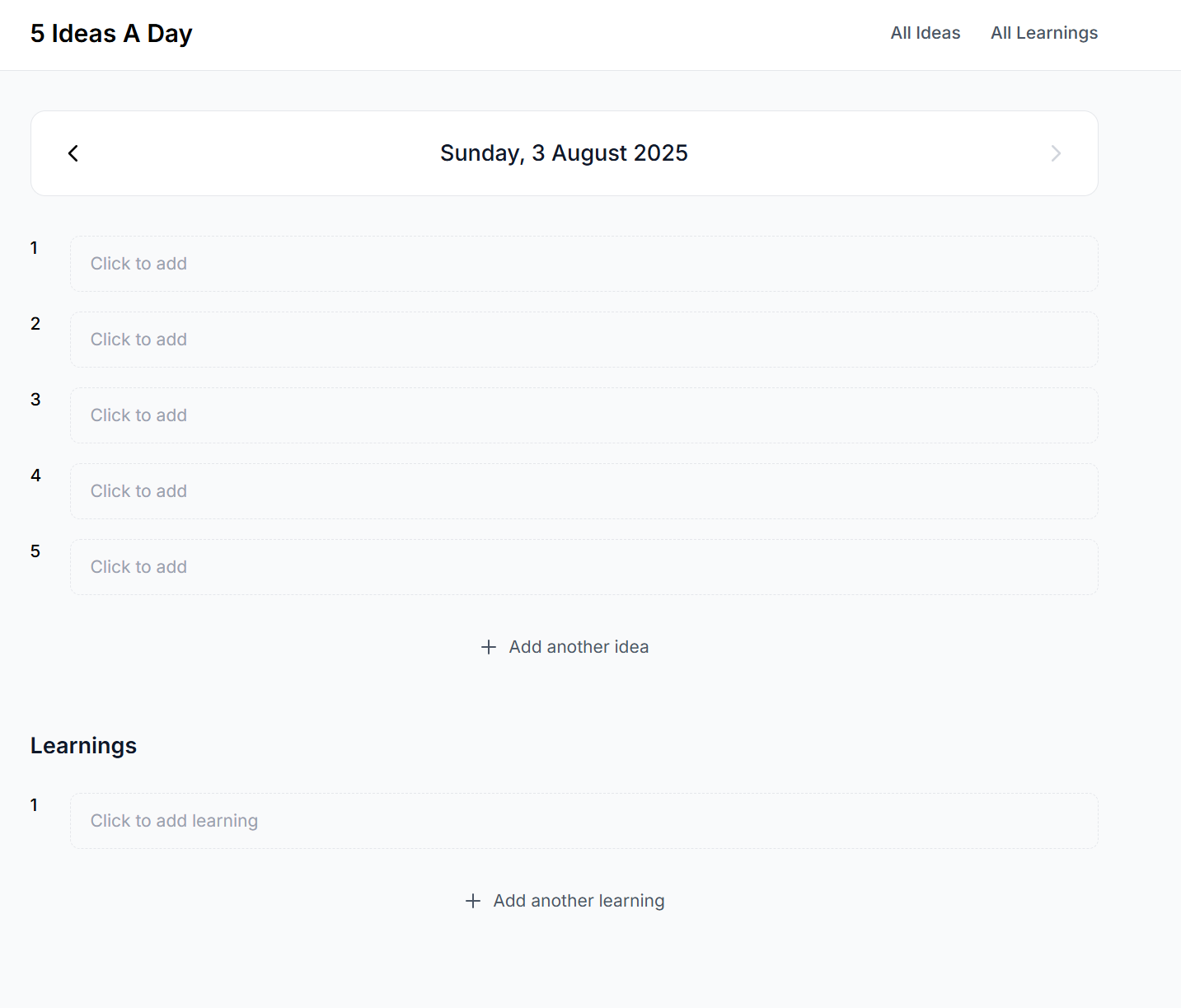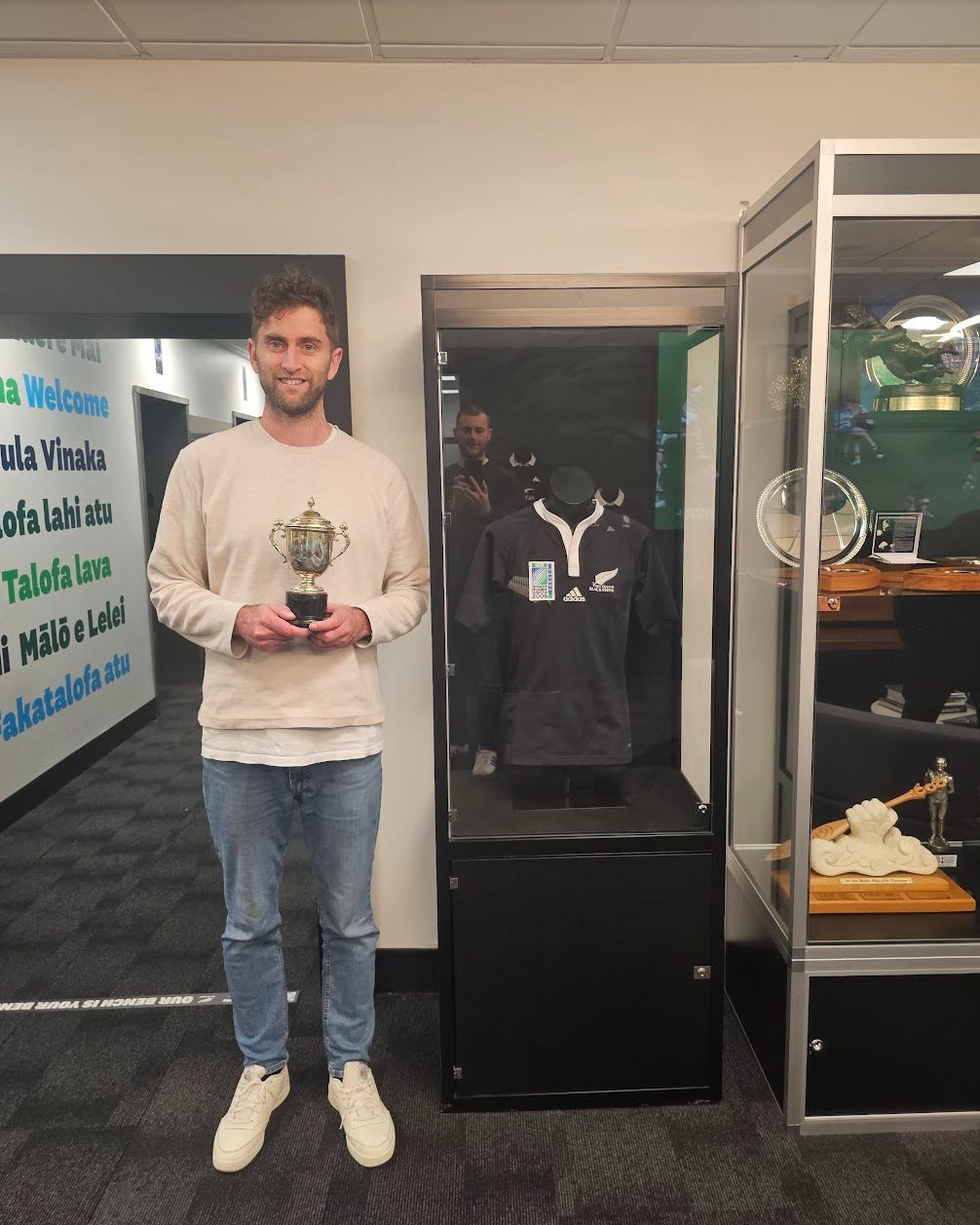I predict AI will not increase productivity as much as everyone thinks
A historical look at the three forces of productivity gains + some World Cup Trophies
I spent some time at the New Zealand Rugby office in Wellington this week.
There were amazing things on the walls.
Bill’s big sheet was one of my favourite things.
The sheet involves all of the talking points the commentator had written down for the 1987 World Cup Final that New Zealand won, 29-9.
Zooming in on the sheet, all of the pen marks are notes and statistics about each of the players.
The highlighted T’s above, show who scored the tries.
So basically the commentator has at his fingertips every possible statistic about every player. I also bet because it was all handwritten that he would have memorised a lot of these.
It reminds me of the graphs and charts you see in Winston Churchill’s bunker.
All this is to set up that a lot has changed since these hand written times.
What’s this got to do with productivity
This is New Zealand’s productivity graph since 1996. For service industries it has gone up roughly 50% in 27 years, which averages out to about 1.5% increase per year.
Think about all the things that we have got since.
From a software perspective
Microsoft Office/Google Docs etc
CRMs
Xero
Minecraft
Pretty much every software in existence
Then from a technology perspective
Broadband
Mobile phones (not so sure of their benefit to productivity)
Wi-fi
I could go on and on, data analytics, dashboards, basically the whole world has fundamentally changed.
The strange thing about this jump is even with all of those things, we are only 50% more efficient.
Imagine going back to 1996. Basically that chart is saying that you would produce about half as much as you do now. When you put it that way, I definitely couldn’t produce half as much as I do.
Maybe it’s because there was no social media to distract us?
The key point of all of this is that basically productivity rises on average at 1.5% a year. It’s basically something you don’t notice. That is our baseline.
So then, will AI increase things more than that?
Well there is something going on here under the surface and I think that it should cast some doubt in your mind if you think we are going to see 20% increases per year.
I. The Great Expectation Shift
We keep inventing things that are supposed to save us time. Automations. Chatbots. Scheduling tools. Slack integrations. Yet nobody I talk to feels like they have more time. If anything, the thing you hear the most is how people are stretched.
Why is that?
Well, there’s this idea I came across—The Great Expectation Shift.
Basically: when a task gets easier to do, people expect more of it. Email got faster, so now you’re expected to reply instantly. You can whip up a chart in 2 minutes, so now every meeting needs 10 of them.
The thing I have learnt is that.
Saving time doesn’t seem to be saving time.
Quite the opposite, it seems to be raising the bar.
The economist John Maynard Keynes wrote an essay in 1930 "Economic Possibilities For Our Grandchildren." It was a bold essay and it claimed that by 2030 we would have basically ‘solved’ the economic problem and only work 15 hour weeks.
Now Tim Ferris is the only person I know that works 4 hour weeks, but it still seems like 40+ is still a common number. Maybe AI will swoop in the next 5 years and save us all and make Keynes’ essay come true.
But, let’s assume that won’t happen.
Now it’s time to introduce my second historical character. William Stanley Jevons
II. Jevons Paradox in the Digital Age
In the 1800s, they made steam engines more efficient, and instead of using less coal… they used more. Because it was now cheaper to use.
This is called Jevons Paradox.
Jevons observed that as something gets cheaper to produce, you consume more, not less.
Same thing now. AI makes writing easier, so we write more. Design is more accessible, so we’re expected to make everything look polished. Tools that were meant to reduce the load just make the load heavier.
And it keeps climbing.
III. The Ratchet Effect of Rising Standards
There’s a ratchet effect at play. What was once “going the extra mile” becomes the bare minimum. Yesterday’s bonus slide is today’s requirement.
Everyone’s seen how easy Canva or ChatGPT makes things—so if you’re not using them, it looks like you’re slacking.
You’re not just keeping up. You’re fighting status anxiety.
So what do you do?
Oh it’s super obvious.
You just lean into it. Out-tool everyone, push your team harder. Demand more and more until you are basically running the most efficient well oiled team in the world. Think how the Formula-1 team does a pit-stop, but you do that for every single thing in your life.
Jokes.
I do think there is a path to productivity, but it starts with being aware of these forces.
I believe that going forward you are going to have to intentionally become a minimalist in key areas.
Me personally? As a maximalist in life, I am giving ye’olde minimalism a go. Don’t worry, I’m not going to go all Steve Jobs on this and sell my couch.
I’m basically just making some websites that are white background and black text for me. That’s huge.
The reason I am doing the above? It’s time to value. Sure I could make it look nice and add designs and animations, but all of those things are just extra fluff.
Here’s how I think you can be productive with AI
Look to remove requirements instead of adding them. Do you really need that extra thing? Do you really need more complication?
Make something exist first and then make it good.
Be aware of your own rising standards and the ratchet effect. Is there a world where what you were doing 10 years ago was actually better?
Use it to amplify what you love and your own passions and strengths.
I do believe there is a world where you can achieve big AI gains. History would suggest anything north of 1.5% per year would be a good win over a 10 year period. Let’s bump that number to 5-10% as a target.
Paul Graham has this to say.
Here’s a trap I think you need to avoid
Being busy for the sake of it. An example of this would be using AI to transcribe your meeting minutes, so that you can then generate your email. When potentially a phone call is faster. Sure you have been productive but have you chosen to do the right thing?
Using AI when a simple workflow will do. See my post at the bottom of the page for an essay on how to avoid that.
Not understanding your own strategy and your unique value proposition. Look at the rise of AI generated content across a whole bunch of media platforms. Just because you can, doesn’t mean you should.
Not doing something you are passionate about. I heard that 90% of podcasts don’t get past the third episode. I’m bullish on people doing things they love. With AI that’s a fearsome combo. If you are doing it for anything else, it seems like it’s just a path to being a bit average.
I like this quote by Stephen Covey
The main thing is to keep the main thing, the main thing.
I think that focus is going to be more important and doing the things that you do well to the best of your ability.
You can see the expectation shift happening with the World Cup trophies.
The one from 1987 is tiny.
The 2015 trophy is basically the perfect metaphor for this blog post.
Look how it’s grown!
Thanks for reading, I hope I have convinced you to become a minimalist at least in some areas of your life.
Also Wellington is cool as. Everything is magically 10 minutes from each other.
Plus look how high fashion their Hallenstein’s is.
Keen to read more this week?
You don’t need an AI agent for everything



